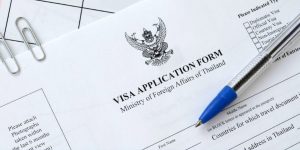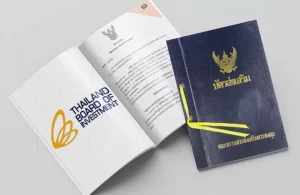If you are planning to purchase a property in Thailand, you should be familiar with the laws surrounding the transfer of property in Thailand. Transfer fees are calculated by calculating the appraised value of the property. Usually, they are 2% of the total value of the property. Transfer duty is a tax that is shared by both the buyer and the seller. To avoid problems, it is recommended to hire a property lawyer. Read on to learn more about the rules and regulations for transfer of property in Thailand.
Thai Property Purchase and Transfer
A sale and purchase agreement covers the sale and purchase price of a property, deposit amounts (usually five to twenty percent of the total price), and transfer costs. Transfer fees, such as stamp duty, are usually split 50/50 between the buyer and seller. If the purchaser is not a resident of Thailand, the seller is responsible for all transfer costs, including the withholding tax. A Thai property lawyer will calculate these charges when completing due diligence.
The cost of Thai property purchase and transfer varies, but is generally around 6.8% of the property’s estimated value. These fees are part of the official conveyancing process. If you own the property for at least five years, you will have to pay 0.5% of the property’s registered value. In addition, you must pay a special business tax of three percent on the transfer price. Although this amount seems low, it may not be as low as you think.
Taxes and Transfer Fees
When acquiring a property in Thailand, buyers need to take into account the different taxes and transfer fees. One of these costs is the Transfer Fee, which applies to freehold properties. This fee is equivalent to 2% of the property’s appraised value. The seller and buyer both pay the Transfer Fee to the District Land Office. A property lawyer in Thailand can calculate this for them. Here’s what to expect:
A foreign buyer may be able to sell a property by way of a Thai-incorporated holding company. This process can save both time and money. A share transfer agreement will look like a share transfer and will avoid fees and taxes, although this method of sale may be considered tax evasion. Otherwise, a Thai buyer will be liable for the purchase taxes and transfer fees associated with the property’s sale.
Tax from the Sale of Property
The government imposes a tax on the sale of property in Thailand. Normally, a 2% transfer fee is applied, shared between the buyer and seller. However, this amount is negotiated. The government will also charge stamp duty of 0.5% if the property is owned by the owner for more than five years. A collective bargaining agreement can be used as a tax credit. A buyer can also use a collective bargaining agreement as a tax credit for the transaction.
While many foreign investors don’t know about their tax obligations upon selling a property, they can benefit from a flat tax system. Unlike other countries, there is no annual income tax when owning property in Thailand. The tax rate is zero at the time of sale. Buying property in Thailand is a good option if you’re looking to enjoy impressive rental yields. The tax rate is highly advantageous as it guarantees you the highest return possible for your investment, and the least amount of erosion of your capital gains.
Hiring a Property Lawyer in Thailand
If you are looking to buy real estate in Thailand, hiring a property lawyer is recommended. The country is one of the most popular places to buy overseas property due to its excellent quality of life and affordable prices. However, the legalities of buying property in Thailand are not as simple as in other countries. You should seek the help of a lawyer for the transfer of property, as doing so can end up costing you much more in the long run.
While many expats assume that court cases in Thailand can be settled quickly, this is far from the truth. Many court cases can last years, and defendants cannot leave the country while the case is open. Hiring a property lawyer is worth the investment. Here are some of the reasons why. This article will provide you with some tips on hiring a property lawyer in Thailand. You’ll be glad you did.















